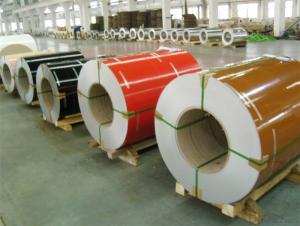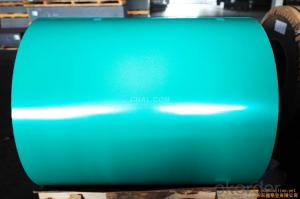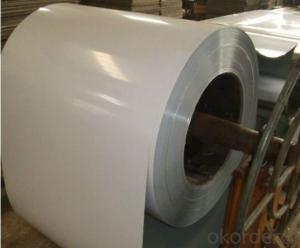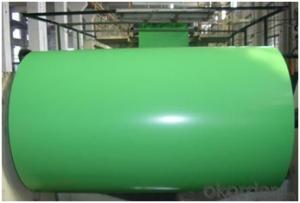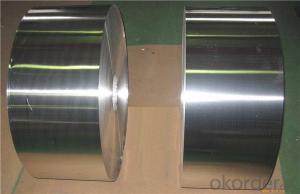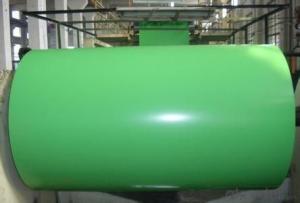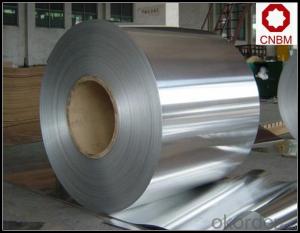Painted Color Aluminum Coil Mirror Aluminum Anticorrosion
- Loading Port:
- Shanghai
- Payment Terms:
- TT or LC
- Min Order Qty:
- 8 m.t.
- Supply Capability:
- 5000 m.t./month
OKorder Service Pledge
OKorder Financial Service
You Might Also Like
Item specifice
Structure of Painted Color Aluminum Coil Mirror Aluminum Anticorrosion Description
Coated aluminum coil/sheet are of a wide range of colors, which gives wonderful appearance no matter in residential and commercial constructions of great exhibition centers.
The coated aluminum coil/sheet have been widely used in the fields of construction and decoration( garage doors, ceiling etc.), electronic appliances, lighting decoration, air-condition air pipes, sandwich panels and drainages etc.
Main Features of Painted Color Aluminum Coil Mirror Aluminum Anticorrosion :
1) Perfect weather ability, high strength, no special maintenance
2) Convenient construction, short working time
3) Excellent machining heat insulation, sound insulation property and perfect fireproof performance
4) High plasticity, good impact resistance, quakeproof performance and reducing buildings load
5) Goods smoothness, lightweight and rigid, beautiful and cheap
6) Various colors available
7) Simple machining equipments, processing in spot.
Image of Painted Color Aluminum Coil Mirror Aluminum Anticorrosion:
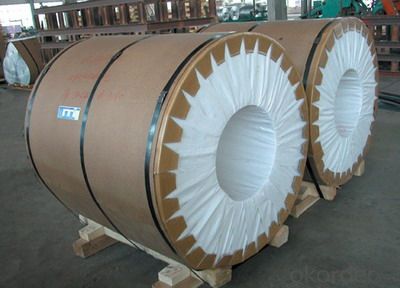
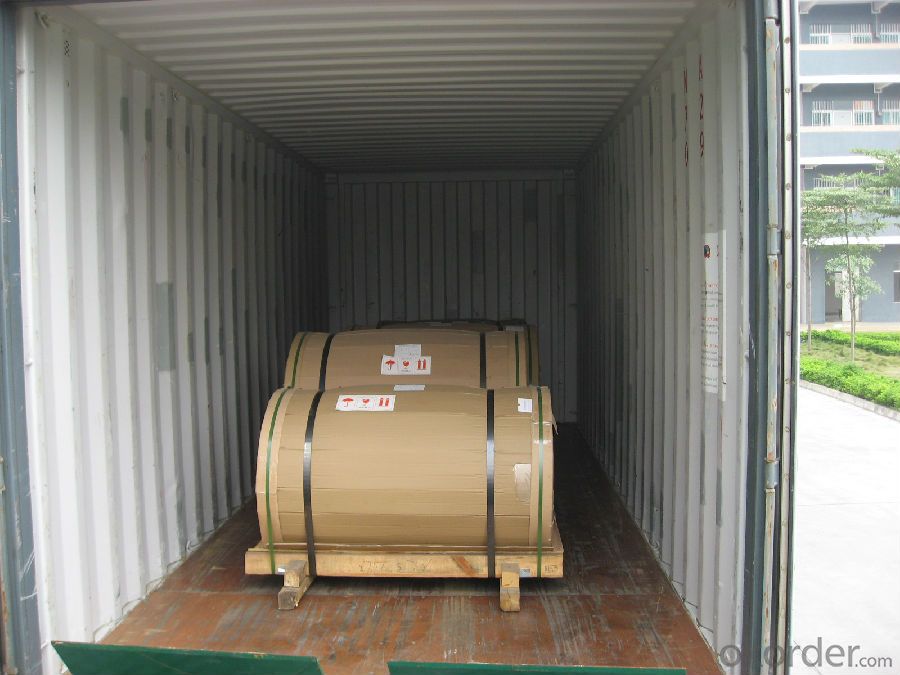
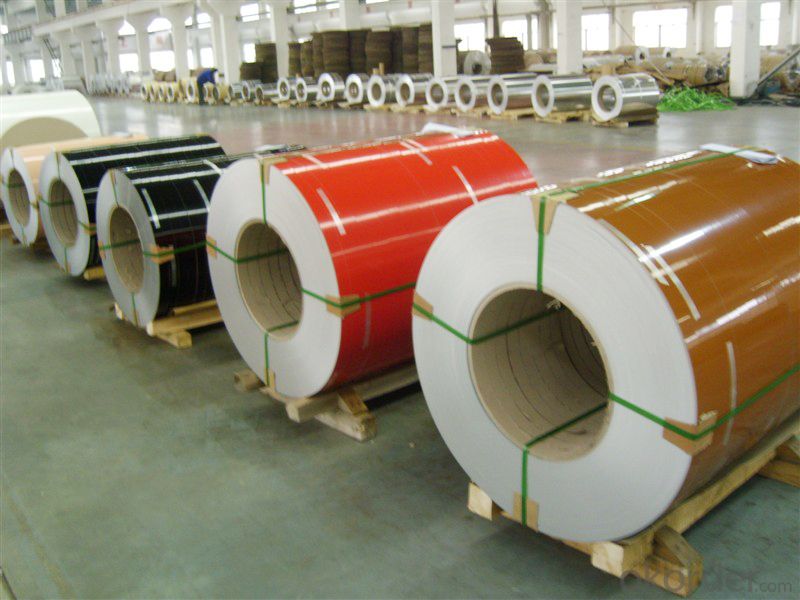
Aluminium Coated Coil Specification:
Product Name | Aluminum Coil |
Alloy | A1100,A3003,A1050,A8011,A3105,A5005 etc |
Thickness | 0.022mm to 3.0 mm |
Width | Standard width:1240mm; 1200mm |
All width: 30mm - 1600mm | |
Diameter | out dia:1200mm |
Interior dia: 405mm,505mm | |
Weight | 2.5 T/coil,3.0 T/coil |
Coating | PE,PVDF,ACRYLIC |
Surface | Embossed, mill finish, coated; aluminum gutter coil |
Color | AS to all RAL color |
Gloss | 10-90%(EN ISO-2813:1994) |
Coating Thickness | PE: more than 18 micron |
PVDF: more than 25 micron | |
Coating Hardness (pencil resistance) | More than 2h |
Coating adhesion | 5J(EN ISO-2409:1994) |
Impact Resistance | No peeling or cracking(50 kg/cm,ASTMD-2794:1993) |
Flexibility (T-bend) | 2T |
MEK resistance | More than 100 |
FAQ of AA5052 Aluminium Coated Coil:
a.What is monthly capacity
---CNBM is one stated own company and our monthly capacity is about 2000tons.
b. Now which countries do you export your goods?
---Now we export to South East Asia,Africa, North America,South America ect.
- Q:What are the different types of aluminum alloy used in coil production?
- In coil production, various aluminum alloys are utilized, each possessing distinct properties and characteristics. Commonly employed in the production of coils are the following aluminum alloys: 1. The 1100 Aluminum Alloy is renowned for its exceptional corrosion resistance, high thermal conductivity, and electrical conductivity. It finds frequent application in areas where strength is not the primary concern, such as food and beverage packaging. 2. The 3003 Aluminum Alloy is frequently employed in coil production due to its moderate strength and excellent formability. It is commonly used in roofing and siding applications, as well as the manufacturing of HVAC components. 3. The 5052 Aluminum Alloy is recognized for its remarkable strength, excellent corrosion resistance, and good formability. It is ideally suited for marine and automotive applications, including the production of fuel tanks and body panels. 4. The versatile and widely utilized 6061 Aluminum Alloy offers a favorable balance of strength, formability, and corrosion resistance. It finds wide-ranging use in structural components, automotive parts, and aerospace components. 5. The 7075 Aluminum Alloy is characterized by its high strength-to-weight ratio and exceptional fatigue resistance. It is predominantly employed in critical applications where strength and durability are paramount, such as the aerospace industry. These examples represent merely a selection of the diverse aluminum alloys employed in coil production. Each alloy possesses distinct properties tailored to specific applications, and manufacturers make their selection based on the desired characteristics of the final product.
- Q:Are there any fire safety considerations when using aluminum coils?
- Yes, there are fire safety considerations when using aluminum coils. Aluminum is a highly flammable material and can ignite under certain conditions, such as exposure to high temperatures or direct contact with an open flame. Therefore, it is important to ensure proper insulation and ventilation when using aluminum coils to prevent the risk of fire. Additionally, regular inspections and maintenance should be carried out to identify any potential fire hazards and address them promptly.
- Q:I know it's almost 100% aluminum, but not completely. Does it have any impurities? I need to find the molar mass of aluminum foil.
- just use aluminum and goto the periodic table of elements. its all aluminum. they used to make it of tin.
- Q:What is the typical thermal expansion coefficient for aluminum coils?
- The typical thermal expansion coefficient for aluminum coils is around 23 x 10^-6 per degree Celsius.
- Q:How do aluminum coils compare to magnesium coils in terms of strength?
- In comparison to magnesium coils, aluminum coils typically exhibit greater strength. Aluminum is renowned for its exceptional strength-to-weight ratio, thus rendering it a favored option across multiple industries. It boasts a higher tensile strength and superior resistance to deformation when subjected to stress, unlike magnesium. Moreover, aluminum possesses a higher yield strength, enabling it to withstand more substantial loads before succumbing to permanent deformation. Conversely, magnesium, despite its lighter nature, tends to possess inferior strength attributes. Although magnesium coils may prove beneficial in specific scenarios where weight plays a crucial role, aluminum coils are generally favored for their strength and longevity.
- Q:How do aluminum coils contribute to the sound insulation of buildings?
- The unique properties and applications of aluminum coils contribute significantly to the sound insulation of buildings. Being lightweight and flexible, aluminum can be easily shaped into coils, making it an excellent choice for sound insulation purposes. One way in which aluminum coils contribute to sound insulation is by serving as a barrier that prevents the transmission of sound waves. When installed in walls, ceilings, or floors, these coils create an additional layer that effectively blocks and absorbs sound energy. Due to its high density and rigidity, aluminum can reflect and absorb sound waves, thus reducing their intensity as they pass through the building structure. Moreover, aluminum coils can be combined with other soundproofing materials, like foam or fiberglass, to enhance their sound absorption capabilities. By working in conjunction with these materials, aluminum coils create a more comprehensive sound insulation system that traps and dampens sound waves. Another advantage of aluminum coils is their resistance to moisture and corrosion, which makes them suitable for both indoor and outdoor applications. This durability ensures that the sound insulation provided by aluminum coils remains effective over time, even in harsh environments. Additionally, aluminum coils are easy to install and maintain, making them a cost-effective solution for sound insulation in buildings. Their lightweight nature allows for effortless transportation and handling, while their flexibility enables them to be installed in various positions and configurations. To summarize, aluminum coils play a crucial role in sound insulation by acting as a barrier, reflecting and absorbing sound waves, and providing durability and versatility. Their combination with other soundproofing materials further enhances their effectiveness. With their lightweight and flexible properties, aluminum coils offer a practical and cost-effective solution for improving the acoustic performance of buildings.
- Q:who invented aluminum and or aluminum foil?
- Well, God invented aluminum, as it is an ELEMENT. The other, I don't know.
- Q:i know aluminum nitrate will dissociate, and also that there is no way that the nitrate will react to make the solution basic or neutral. But what about the aluminum ion? Does it take OH- from water to make [Al(OH)4]- and make the solution acidic? Does it somehow take protons and make a basic solution? My teacher said its not neutral, so I'm leaning towards an acidic solution. Thanks!
- Aluminum nitrate is the salt produced by the reaction of aluminum hydroxide and nitric acid. Nitric acid is a strong acid. Aluminum hydroxide is a realtively weak base. So the salt will be acidic.
- Q:Can aluminum coils be used in the production of aluminum sandwich panels?
- Aluminum sandwich panels can indeed utilize aluminum coils. Typically, these coils serve as the outer skins or facings of the panels. To enhance their durability, resistance to corrosion, and aesthetic appeal, the coils undergo initial processing and coating. This process ensures that they possess the desired qualities. Subsequently, they are bonded with a core material, such as polyethylene or mineral wool, to create a sandwich panel structure that is both lightweight and rigid. The inclusion of aluminum coils provides the panels with exceptional mechanical properties, including a high strength-to-weight ratio, flexibility, and thermal conductivity. Moreover, the use of aluminum coils enables convenient customization as they can be formed, shaped, and painted to meet specific design and specification requirements.
- Q:What is the typical electrical resistivity of aluminum coils?
- The typical electrical resistivity of aluminum coils is around 2.65 x 10^-8 ohm-meters.
1. Manufacturer Overview |
|
|---|---|
| Location | |
| Year Established | |
| Annual Output Value | |
| Main Markets | |
| Company Certifications | |
2. Manufacturer Certificates |
|
|---|---|
| a) Certification Name | |
| Range | |
| Reference | |
| Validity Period | |
3. Manufacturer Capability |
|
|---|---|
| a)Trade Capacity | |
| Nearest Port | |
| Export Percentage | |
| No.of Employees in Trade Department | |
| Language Spoken: | |
| b)Factory Information | |
| Factory Size: | |
| No. of Production Lines | |
| Contract Manufacturing | |
| Product Price Range | |
Send your message to us
Painted Color Aluminum Coil Mirror Aluminum Anticorrosion
- Loading Port:
- Shanghai
- Payment Terms:
- TT or LC
- Min Order Qty:
- 8 m.t.
- Supply Capability:
- 5000 m.t./month
OKorder Service Pledge
OKorder Financial Service
Similar products
New products
Hot products
Hot Searches
Related keywords
